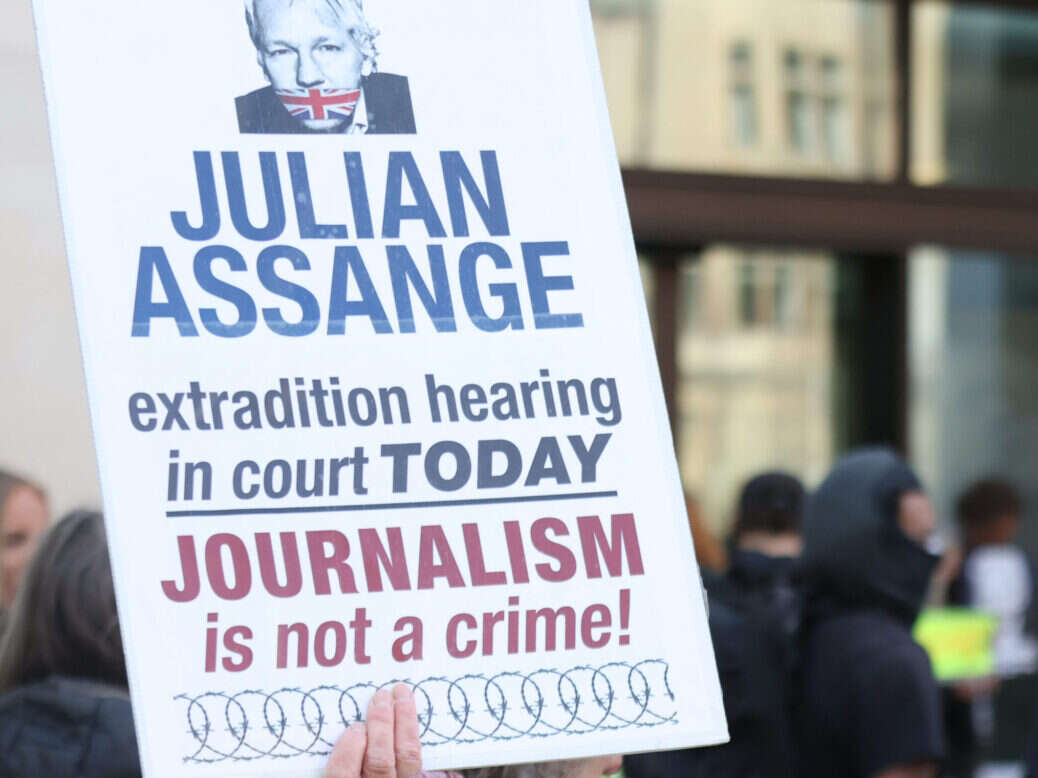
Around the world, hundreds of journalists are in jail for doing their jobs. Quite how many hundreds is a matter of conjecture.
The Committee to Protect Journalists has a tally of nearly 400, while Reporters Without Borders (RSF) lists more than 500 behind bars. The differences can be explained by imperfect information and methodological differences, but what is most striking is the sheer number.
Compared with other occupational groups, journalism is a tiny profession. My organisation, the International Federation of Journalists, represents journalists’ unions in 146 countries, with 600,000 members. At most, I estimate the world sustains a million journalists. By contrast, there are estimated to be 85 million teachers.
But, search as I might, I can find no organisations dedicated to keeping count of the doctors, teachers, engineers or farmers who have been imprisoned simply for doing their jobs. By contrast, several NGOs document journalists in jail and campaign for their release.
Threat of detention hangs over journalists in certain countries
So, you can see that going to prison for doing your job is a real issue for journalists. And of course, for every journalist who is in prison, there will be ten who have been to prison in the past or have been threatened with prison, or for whom the threat of incarceration hangs over them like a cloud.
It would be encouraging to think that they are all the bravest of souls, determined to speak truth unto power whatever the personal consequences, but in our hearts, we know that can’t be true in every case.
If you are a reporter in China, Myanmar or Iran – three of the worst offenders for locking up media workers – I find it hard to believe that the threat of detention does not seep into every aspect of your work.
When I last visited Turkey, I met the editor of a daily newspaper who showed me the army boots that he wears to work each day. “They are more practical when they drag me off to prison,” he told me. A friend with whom I had a drink on that same trip, has since served four months in jail for working on a newspaper considered sympathetic to Kurdish causes.
So this threat of prison does not only affect journalists personally as individuals, it has the capacity to change the news itself. The judge’s gavel and the jailer’s key have the power to force self-censorship, to drive editorial content – not, as it should be, the independent judgement of journalists.
Why Julian Assange case is so important for journalists
It is because of this that the case of Julian Assange is so important.
The argument has been made many times about how his conviction would create a new legislative threat to journalists, of course.
The charges for which Assange is sought relate to the WikiLeaks founder’s handling of the Afghan and Iraqi war logs. Assange met a confidential source who believed he had witnessed significant criminality – now known to be the then-US soldier Chelsea Manning. He advised Manning on discreetly transferring the information and seeking out fresh evidence.
These are, of course, the kind of actions that investigative journalists carry out every day of their working lives. Prosecute Assange and any other reporters who handle classified documents will be subject to the same threat.
But for so long as the US pursues Assange – aided and abetted by the UK government – it creates an even more immediate jeopardy for journalists. While this process is underway, and should Assange be convicted, it renders utterly hollow any protests raised by Joe Biden and Rishi Sunak about the treatment of journalists elsewhere in the world.
Assange imprisonment provides ‘carte blanche’ to others
Recently, Evan Gershkovich of the Wall Street Journal was arrested in Russia and is currently in pre-trial detention, charged with spying. The US State Department and the UK’s foreign secretary may huff and puff about this injustice, but we all know what Putin is saying behind his hand: “We all lock up journalists when their stories discomfort us – look at what you are doing to Julian Assange.”
These are not sentiments about which the Russian authorities are secretive. When Assange was arrested, Russian Foreign Ministry spokeswoman Maria Zakharova said: “The hand of ‘democracy’ squeezes the throat of freedom.” When pressed by a Western ambassador about the detention of Gershkovich, Zakharova parried, essentially asking “Why don’t you demonstrate your commitment to media freedom by releasing Julian Assange?”
Nor should you imagine that repressive regimes are simply hot-headed and impulsive in their treatment of journalists. Look for example at the murder of Jamal Khashoggi. His fiance’s phone was bugged to track his movements, he was lured to the Saudi embassy in Istanbul and a hit squad was dispatched from the gulf.
But the most troubling element of the planning was that the plotter thought they could get away with it. They weighed up the moral standing of their likely critics and decided that whatever would be the reaction, this despicable act could be shrugged off.
And for so long as Julian Assange is in Belmarsh, or worse still, in a US jail, he provides a carte blanche for all those other regimes that would lock up journalists, and worse.
Now there are lots of good reasons why Assange should be released, but none are more important than the collective damage to journalists that is done each and every day that he is behind bars.
If the UK government is sincere about promoting media freedom around the world, it should rule out Assange’s extradition. If the US wants to regain its moral force when protecting free expression, it should drop the charges.
Until that happens, whenever the jailers of journalists are called out, the response will be the same: a shrug of the shoulders and a one-word excuse, “Assange!”
Email pged@pressgazette.co.uk to point out mistakes, provide story tips or send in a letter for publication on our "Letters Page" blog
